BMW X5 vs Subaru Forester – Differences & prices compared
Two cars, one duel: BMW X5 meets Subaru Forester.
Which one wins in performance, efficiency and value for money? Find out now!
Costs and Efficiency:
Looking at overall running costs, both models reveal some interesting differences in everyday economy.
Subaru Forester has a convincingly advantage in terms of price – it starts at 34700 £, while the BMW X5 costs 77100 £. That’s a price difference of around 42352 £.
Fuel consumption also shows a difference: BMW X5 manages with 3 L and is therefore convincingly more efficient than the Subaru Forester with 8.10 L. The difference is about 5.10 L per 100 km.
Engine and Performance:
Power, torque and acceleration say a lot about how a car feels on the road. This is where you see which model delivers more driving dynamics.
When it comes to engine power, the BMW X5 has a significantly edge – offering 625 HP compared to 136 HP. That’s roughly 489 HP more horsepower.
In acceleration from 0 to 100 km/h, the BMW X5 is clearly quicker – completing the sprint in 3.90 s, while the Subaru Forester takes 12.20 s. That’s about 8.30 s faster.
In terms of top speed, the BMW X5 performs evident better – reaching 250 km/h, while the Subaru Forester tops out at 188 km/h. The difference is around 62 km/h.
There’s also a difference in torque: BMW X5 pulls significantly stronger with 750 Nm compared to 182 Nm. That’s about 568 Nm difference.
Space and Everyday Use:
Whether family car or daily driver – which one offers more room, flexibility and comfort?
Both vehicles offer seating for 5 people.
In curb weight, Subaru Forester is clearly perceptible lighter – 1693 kg compared to 2240 kg. The difference is around 547 kg.
In terms of boot space, the BMW X5 offers evident more room – 650 L compared to 508 L. That’s a difference of about 142 L.
In maximum load capacity, the BMW X5 performs slight better – up to 1870 L, which is about 139 L more than the Subaru Forester.
When it comes to payload, BMW X5 clearly perceptible takes the win – 705 kg compared to 492 kg. That’s a difference of about 213 kg.
Who wins the race?
The BMW X5 proves to be dominates this comparison and therefore becomes our DriveDuel Champion!
BMW X5 is the better all-rounder in this comparison.
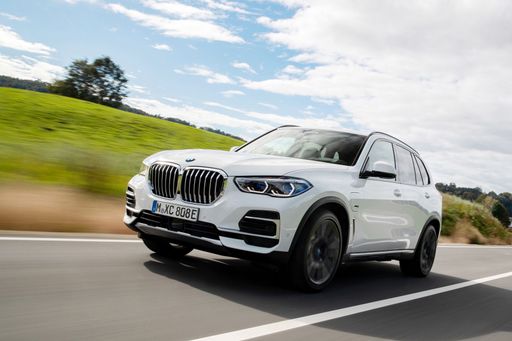 @ BMW Group Press
@ BMW Group Press
BMW X5
BMW X5
The BMW X5 blends athletic handling with a roomy, premium interior, feeling equally at home on twisty country roads and the school-run car park. Its executive-lounge cabin and confident road presence make it a tempting choice for buyers who want comfort, capability and just a little bit of bragging rights.
details @ BMW Group Press
@ BMW Group Press
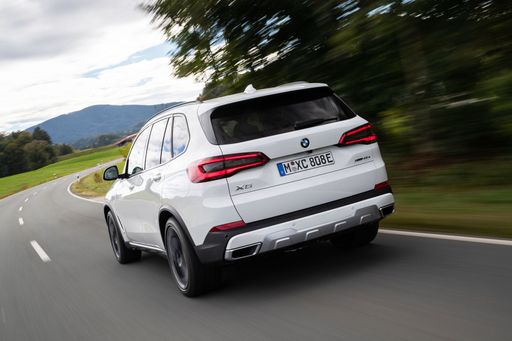 @ BMW Group Press
@ BMW Group Press
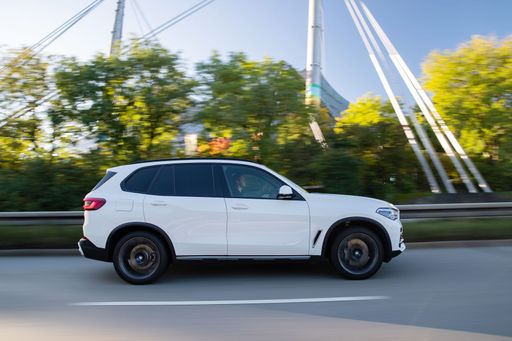 @ BMW Group Press
@ BMW Group Press
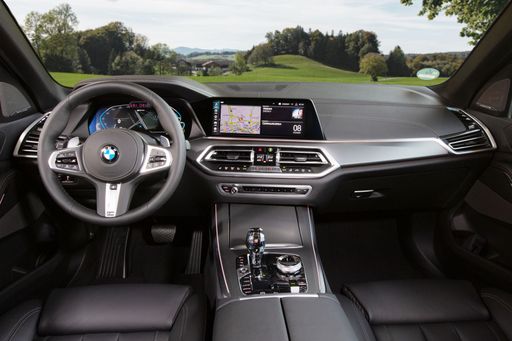 @ BMW Group Press
@ BMW Group Press
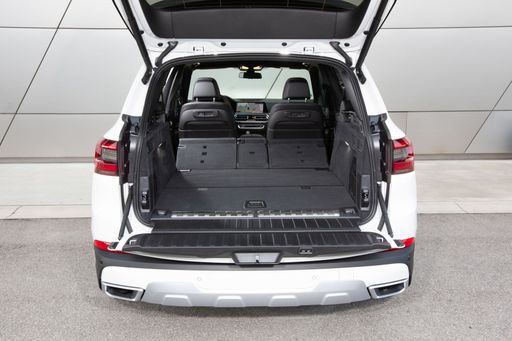 @ BMW Group Press
@ BMW Group Press
Subaru Forester
The Subaru Forester is a versatile SUV known for its impressive off-road capabilities and practical design. With a spacious interior and advanced safety features, it offers comfort and security for both city driving and outdoor adventures. Its reliable performance and all-wheel-drive system make it a popular choice among those who appreciate a combination of functionality and rugged charm.
details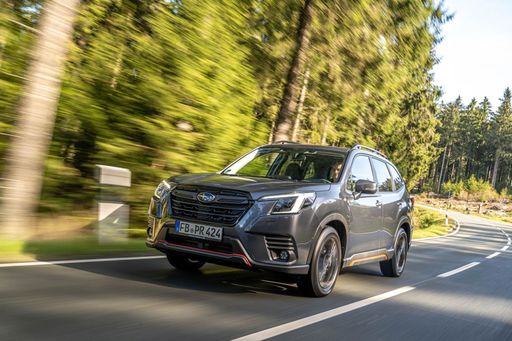 @ Subaru Corporation
@ Subaru Corporation
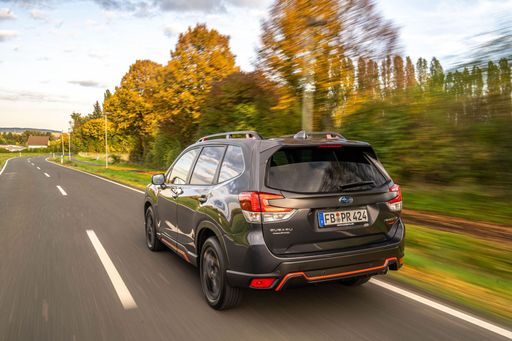 @ Subaru Corporation
@ Subaru Corporation
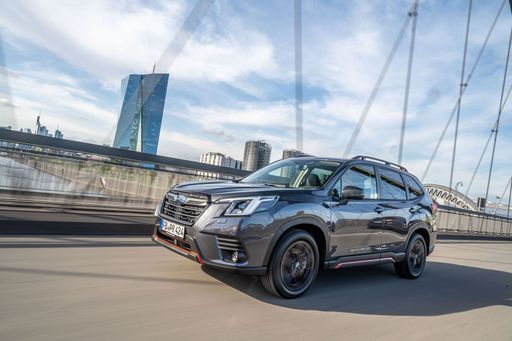 @ Subaru Corporation
@ Subaru Corporation
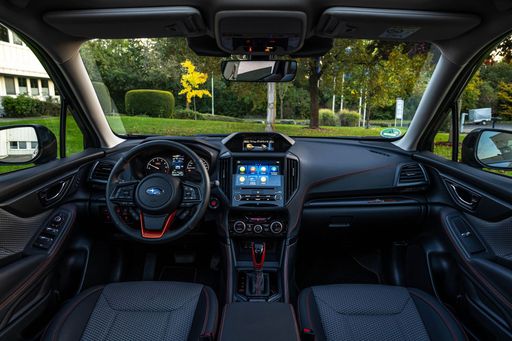 @ Subaru Corporation
@ Subaru Corporation
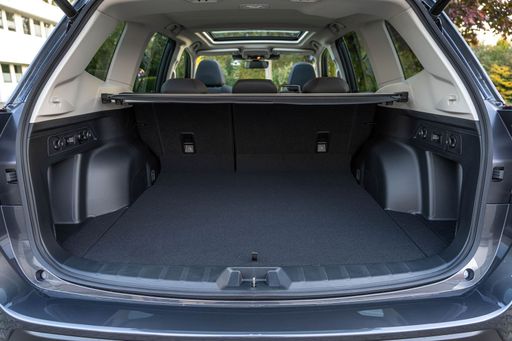 @ Subaru Corporation
@ Subaru Corporation
 @ BMW Group Press
@ BMW Group Press
|
 @ Subaru Corporation
@ Subaru Corporation
|
|
|
|
Costs and Consumption |
|
|---|---|
|
Price
77100 - 143500 £
|
Price
34700 - 42200 £
|
|
Consumption L/100km
3 - 12.8 L
|
Consumption L/100km
8.10 L
|
|
Consumption kWh/100km
-
|
Consumption kWh/100km
-
|
|
Electric Range
105 km
|
Electric Range
-
|
|
Battery Capacity
25.70 kWh
|
Battery Capacity
-
|
|
co2
68 - 289 g/km
|
co2
183 g/km
|
|
Fuel tank capacity
69 - 83 L
|
Fuel tank capacity
48 L
|
Dimensions and Body |
|
|---|---|
|
Body Type
SUV
|
Body Type
SUV
|
|
Seats
5
|
Seats
5
|
|
Doors
5
|
Doors
5
|
|
Curb weight
2240 - 2495 kg
|
Curb weight
1693 - 1739 kg
|
|
Trunk capacity
500 - 650 L
|
Trunk capacity
508 L
|
|
Length
4935 - 4948 mm
|
Length
4670 mm
|
|
Width
2004 - 2015 mm
|
Width
1830 mm
|
|
Height
1755 - 1765 mm
|
Height
1730 mm
|
|
Max trunk capacity
1720 - 1870 L
|
Max trunk capacity
1679 - 1731 L
|
|
Payload
565 - 705 kg
|
Payload
446 - 492 kg
|
Engine and Performance |
|
|---|---|
|
Engine Type
Petrol MHEV, Diesel MHEV, Plugin Hybrid
|
Engine Type
Petrol MHEV
|
|
Transmission
Automatic
|
Transmission
Automatic
|
|
Transmission Detail
Automatic Gearbox
|
Transmission Detail
CVT
|
|
Drive Type
All-Wheel Drive
|
Drive Type
All-Wheel Drive
|
|
Power HP
298 - 625 HP
|
Power HP
136 HP
|
|
Acceleration 0-100km/h
3.9 - 6.1 s
|
Acceleration 0-100km/h
12.20 s
|
|
Max Speed
233 - 250 km/h
|
Max Speed
188 km/h
|
|
Torque
540 - 750 Nm
|
Torque
182 Nm
|
|
Number of Cylinders
6 - 8
|
Number of Cylinders
4
|
|
Power kW
219 - 460 kW
|
Power kW
100 kW
|
|
Engine capacity
2993 - 4395 cm3
|
Engine capacity
1995 cm3
|
General |
|
|---|---|
|
Model Year
2025
|
Model Year
2025
|
|
CO2 Efficiency Class
G, B
|
CO2 Efficiency Class
G
|
|
Brand
BMW
|
Brand
Subaru
|
Is the BMW X5 offered with different drivetrains?
The BMW X5 is available as All-Wheel Drive.
The prices and data displayed are estimates based on German list prices and may vary by country. This information is not legally binding.
